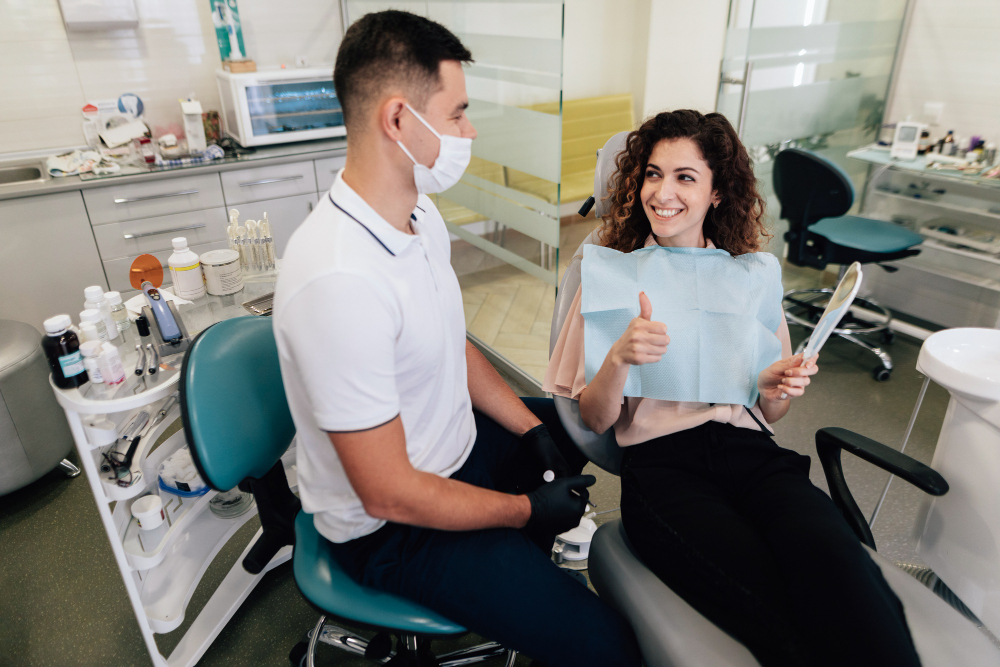Implant-supported dentures have revolutionized the world of dental prosthetics, offering a secure and natural-feeling solution for those missing teeth. Unlike traditional dentures, implant dentures in Rockledge are firmly anchored in the jaw with dental implants, providing stability and functionality. However, only some are ideal candidates for this innovative dental solution.
Let’s explore the characteristics that make someone a suitable candidate for implant-supported dentures.
Sufficient Jawbone Density
One of the primary factors determining suitability for implant-supported dentures is the density and quality of the patient’s jawbone. The dental implants used to support the dentures need a stable foundation in the jaw. In cases where a patient’s periodontal disease or tooth loss has resulted in considerable bone loss, further operations like bone grafting could be necessary to restore the bone to a healthy level. A thorough assessment by a skilled dentist or oral surgeon is necessary to determine if there’s enough bone to support the implants.
Good Oral Health
Candidates for implant-supported dentures should have a generally healthy mouth. Prior to the implant process, oral health problems, including gum disease or untreated tooth decay, should be addressed and rectified. Infections and inflammation in the mouth can interfere with the success of the implants, so it’s crucial to start with a clean and healthy oral environment.
Commitment to Oral Hygiene
Maintaining good oral hygiene is vital for anyone considering implant-supported dentures. Patients must be committed to a regular oral care routine, including daily brushing and flossing, to prevent complications like peri-implantitis, an inflammatory condition affecting the tissues around the implant. To keep an eye on the state of the implants and general oral health, routine dental examinations and professional cleanings are also crucial.
Non-smoker or Willing to Quit Smoking
Smoking is known to increase the risk of dental implant failure. Nicotine can impair the healing process and reduce blood flow to the gums, hindering the implant’s integration with the bone. Suitable candidates for implant-supported dentures should either be non-smokers or willing to quit smoking during the implant placement and healing process.
Adequate General Health
Candidates for implant-supported dentures should be in good overall health. Prolonged medical disorders, such as uncontrolled diabetes or some autoimmune diseases, can impact the healing and efficacy of dental implants. Potential candidates need to discuss their medical history with their dentist to determine if there are any contraindications.
Age Considerations
While age alone is not a determining factor for candidacy, older adults can undoubtedly benefit from implant-supported dentures. More critical is the individual’s overall health and ability to undergo implant surgery. Many elderly patients have successfully received implant-supported dentures and enjoyed improved quality of life.
Commitment to Follow-Up Care
After the initial implant placement, patients must be committed to follow-up care and maintenance. Regular dental check-ups and professional cleanings are necessary to monitor the condition of the implants and ensure their longevity. Candidates should be willing to comply with the dentist’s recommendations for long-term care.
Financial Considerations
Dentures supported by implants may cost more than conventional dentures. Candidates considering this innovative dental solution, like dental implant cost in Rockledge, need to assess their budget and explore potential payment options, such as dental insurance or financing plans, to ensure they can cover the cost of the procedure.
Implant-supported dentures can provide an excellent solution for those seeking stable and natural-feeling replacements for missing teeth. If you believe implant-supported dentures may fit you, consult a skilled dentist or oral surgeon who can evaluate your circumstances and guide you. Ultimately, finding the proper treatment for your individual needs is the key to restoring your smile and quality of life.

